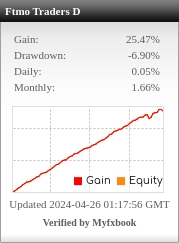
Valuation techniques are critical for proprietary traders aiming to outperform the market. One such indispensable method is Free Cash Flow to the Firm (FCFF) valuation. Given its comprehensive nature, mastering FCFF can be your key to making informed, high-return investments.
What is FCFF Valuation?
FCFF, or Free Cash Flow to the Firm, represents the cash generated by a company that is available to all capital providers, including debt and equity holders. This metric is pivotal in assessing a company’s financial health and growth potential, making it a staple in proprietary trading strategies.
The Importance of FCFF
Understanding FCFF is important for several reasons:
- Holistic Financial View: Unlike other metrics, FCFF captures the overall cash generation capacity of a firm, considering both debt and equity.
- Predictive Power: FCFF provides insights into a company’s future performance, enabling better strategic decisions.
- Fair Valuation: It assists traders in estimating the intrinsic value of a company, supporting investment choices grounded in financial realities.
Calculating FCFF
To effectively apply FCFF valuation, one must first understand how to calculate it. Here’s the formula:
[
FCFF = EBIT times (1 – Tax Rate) + Depreciation & Amortization – Capital Expenditures – Delta Working Capital
]
Breaking Down the Components
- EBIT (Earnings Before Interest and Taxes): This is the pure operating income of the business.
- Tax Rate: Applied to EBIT to find the after-tax income.
- Depreciation & Amortization: Non-cash expenses added back to calculate true cash flow.
- Capital Expenditures: Investments made in long-term assets, subtracted since they are cash outflows.
- Change in Working Capital: Differences in current assets and liabilities impacting cash flow.
Steps to Master FCFF Valuation for Prop Trading
Gather Comprehensive Data
As a proprietary trader, having reliable financial data is paramount. Collect detailed financial statements from credible sources to ensure accuracy in your FCFF calculations.
Analyze Historical Performance
Historical analysis serves as a cornerstone of effective FCFF valuation. Examine past annual reports to understand trends in EBIT, capital expenditures, and working capital.
Project Future Performance
Utilize financial modeling techniques to project future revenues, costs, and operational efficiencies. Accurate forecasting will enhance the reliability of your FCFF.
Perform Sensitivity Analysis
To mitigate risks, conduct sensitivity analysis. This involves testing various scenarios to see how changes in key assumptions (like tax rates or capital expenditures) affect FCFF.
Compare with Market & Industry Benchmarks
Compare your FCFF valuations against industry benchmarks and market values. This helps ensure that your valuations are both realistic and competitive.
Advanced Tips for Prop Traders
Leverage Technology
Utilize advanced financial software and tools to streamline your FCFF calculations. Automation can significantly reduce errors and save time.
Stay Updated on Market Trends
Market dynamics can influence FCFF valuations. Stay informed about economic shifts, regulatory changes, and industry-specific trends that could impact your analysis.
Consult Expert Opinions
Occasionally consult with seasoned analysts or financial consultants. Expert insights can refine your FCFF approach and introduce new valuation angles.
Common Pitfalls to Avoid
- Ignoring Market Conditions: Always account for prevailing market conditions. Economic downturns or booms can drastically affect your FCFF outcomes.
- Overestimating Growth Rates: Be conservative in growth projections. Overoptimistic estimates can lead to inflated valuations.
- Neglecting Short-term Liabilities: Just like capital expenditures, short-term debts and liabilities impact available free cash flow and should be factored in.
Conclusion
Mastering FCFF valuation offers proprietary traders a strategic edge in identifying undervalued opportunities and making well-informed financial decisions. By following the outlined steps and tips, you can harness the full potential of FCFF in your trading strategies, ensuring robustness and profitability in your investment endeavors.
Incorporating these best practices will not only enhance your trading acumen but also position you competitively in today’s fast-paced financial landscape. Happy trading!
By following these guidelines and continuously refining your approach, you’ll become proficient in FCFF valuation, pushing your proprietary trading success to new heights.




